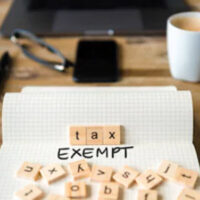Applying for 501(3)(c) Tax-Exempt Status

The IRS recently announced that it would be revising the application for charities seeking tax-exempt status, also known as Form 1023. Although the new form promises to be more streamlined, it is still important for those who have founded charities and who have not yet applied for tax-exempt status, to retain an experienced Florida tax and IRS attorney who can walk them through the filing process.
Who Qualifies for Tax-Exempt Status?
There are a number of different types of organizations that qualify for tax-exempt status, including:
- Charities;
- Religious organizations;
- Educational organizations;
- Social welfare organizations; and
- Non-profit organizations.
The requirements of filing for tax-exempt status are dependent on the type of organization in question. For instance, charities, which fall under the category of 501(3)(c) organizations, will only receive tax-exempt status if they complete and submit Form 1023.
Eligibility for Tax-Exempt Status
A charitable organization will only be considered exempt from federal income tax if it is:
- Organized as a corporation, LLC, trust, or unincorporated association; and
- Operated to further at least one exempt purpose, which must also be stated in the organizing document.
In addition to these requirements, charities must refrain from engaging in certain activities in order to qualify for tax-exempt status. This includes a prohibition against participating in political campaigns, using assets to enrich board members or officers, furthering purposes that benefit private interests, or operating for the purpose of conducting a trade or business that is not charity-related.
Preparing to File for Tax-Exempt Status
Before filing Form 1023, charities applying for tax-exempt status should take a few preparatory steps, including:
- Determining whether their organization is a trust, association, or corporation;
- Gathering their organization documents;
- Complying with the state’s registration requirements; and
- Obtaining their Employer Identification Number (EIN).
Once these steps are completed, the charity must complete Form 1023, which, as of January 31st, must be submitted online in electronic form. The IRS will, however, give taxpayers a 90 day grace period, during which it will still continue to accept paper submissions.
Completing Form 1023
When applying for tax-exempt status, a charity must provide a wide range of information, including:
- Basic organizational data, as well as a list of officers, trustees, and directors;
- Details about its organizational structure, including how and where the organization was legally formed, as well as a copy of its organizing document;
- A detailed description of its activities and purpose, including past, present, and planned activities;
- Details about its compensation and financial arrangements;
- Three to five years worth of revenue and expense-related documentation, including details about donations, fees, and grants for services, as well as expenses like salaries and service costs;
- Balance sheet information with a snapshot of assets and liabilities; and
- Its foundation classification.
For help collecting and providing this information for your own petition for tax-exempt status, please contact our legal team today.
Speak with a Dedicated Florida Tax Attorney
Please contact 386-490-9949 today to speak with experienced Florida tax lawyer Ronald Cutler, P.A. today about electronically applying for tax-exempt status.
Resource:
stayexempt.irs.gov/se/files/downloads/Elecronic%201023%20Overview.pdf
https://www.hotlineforhelp.com/what-to-do-when-you-receive-a-letter-from-the-irs/
